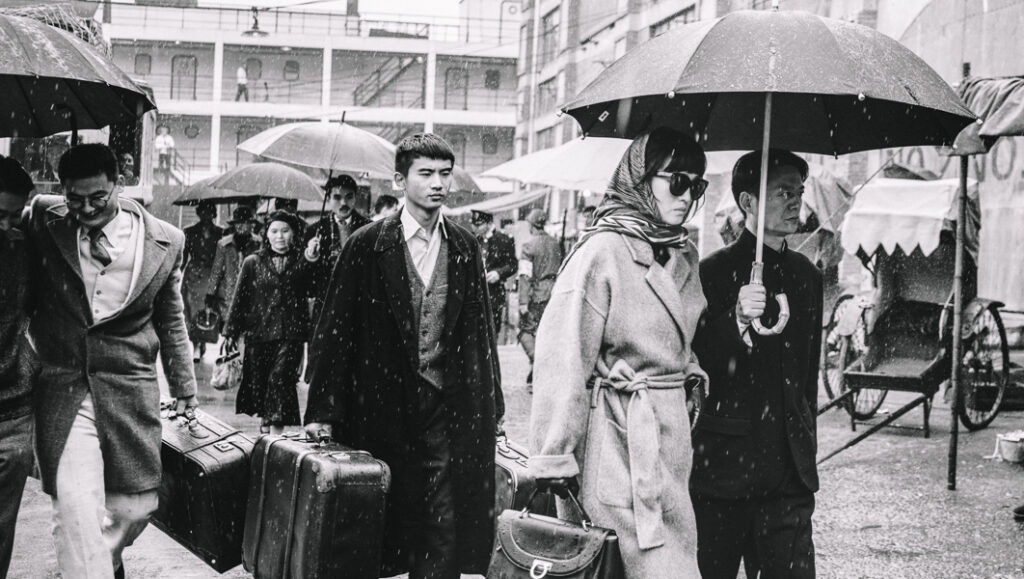Saturday Fiction is a formally enterprising and experimental work that delivers as an exercise in digital esotericism.
Set amidst the spy games of Allied and Axis intelligence agencies in Shanghai’s neutral French Concession, Saturday Fiction tracks famed actress and Allied agent Jean Yu (Gong Li) as she — having returned to the city with the cover of assuming the lead role in a play directed by her former lover, Tan Na (Mark Chao) — attempts to extract information pertaining to Japan’s pacific arena military strategies, and eventually discovers the plans for what will become an assured historical event: the attack on Pearl Harbor. Like Lou Ye’s wartime, Shanghai-set Purple Butterfly, Saturday Fiction shares a common respect for a classical form of cinema — one to which, among his Sixth Generation contemporaries, Lou remains curiously alone in paying homage. Each film references Casablanca and To Have and Have Not through its use of location — and The Big Sleep with regard to narrative complexity. But, in Saturday Fiction, another reference presents itself: Josef von Sternberg’s Dishonored, which likewise revolves around an examination of matters of desire, gender politics, agency, deception, and self-realization in the world of espionage. Von Sternberg imagined his film’s cold ending as the result of individuals’ manipulations, while Lou conceives of humanity’s misbegotten and confused place in an unchangeable historical, even cosmic, tragedy of desire and realization.
Despite being notably cheaper, smaller scale, and less politically ambitious than Lou’s other film made in 2019, The Shadow Play, Saturday Fiction is likely the more formally enterprising and experimental of the two — in addition to featuring a globe-spanning cast. Though beholden to filmmaking’s pivot to digital, Lou’s preferred handheld shooting method remains elegant; his shots are unusually composed, chiefly at mid-distance, and develop psychological tension in their simultaneous proximity and slight removal, while the camera’s more general immediacy and willowy movements root the viewer in a world as the characters encounter it. The structural device of the film’s theatrical production subtly interrupts and blurs into the wider film, both narratively and formally, with individual scenes and their locales coming to serve as discrete blocks of theatrical staging in and of themselves — a sensation only heightened by the dizzyingly fluid camera and the ever-shifting intentions of characters’ interior and exterior actions. All told, as a rewiring of many cinematic coordinates — and original in more than a few ways besides — Saturday Fiction is quite a remarkable work, delivering as a technical exercise in digital esotericism, an example of a truly global vision, and an uncompromising commitment to desire and personhood that blinds as much as it guides in a continuum of violence and control. And Lou’s concept here is not only descriptive of the problems encountered by his characters — it’s also one which surely expresses artistic concerns of the Chinese filmmaker himself.
Originally published as part of Toronto International Film Festival 2019 | Dispatch 5.


Comments are closed.